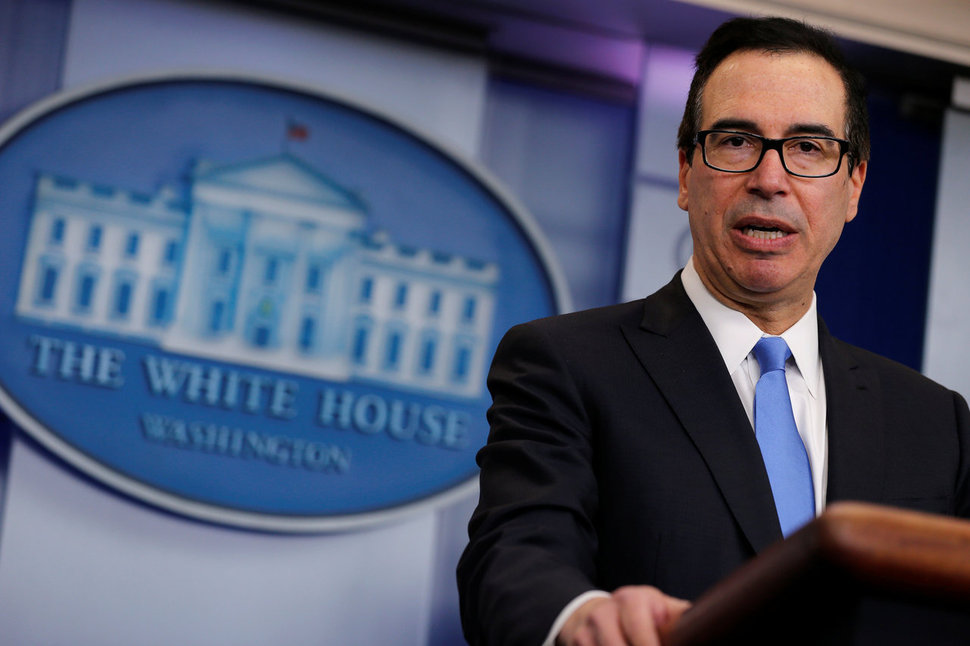 |
|
US Treasury Secretary Steve Mnuchin announces new sanctions on North Korea at the White House on Feb. 23. (Yonhap News)
|
New measures will target shipping companies in North Korea, China, and Hong Kong
The Trump administration announced new independent sanctions on Feb. 23 targeting large numbers of shipping companies and vessels reportedly involved in exportation of North Korean coal and “ship-to-ship transfers of refined petroleum products.” At the same time, it also left the door open for negotiation with Pyongyang. On Feb. 23, the US Treasury Department’s Office of Foreign Assets Control (OFAC) designated 28 vessels and 27 shipping companies in North Korea, China, and Hong Kong as subject to new independent sanctions. One trading company operator of Taiwanese nationality was also included on the list of sanctions targets. The Trump administration described the measures as the “largest North Korea-related sanctions tranche to date.” The direct effects of the sanctions are expected to be limited. Individuals and corporations targeted are barred from transactions with US individuals and corporations, and their assets in the US are frozen. The likelihood of North Korean vessels and companies putting in to US ports or conducting transactions with US businesses is slim, and the scale of shipping companies and vessels from other nationalities is believed to be small. But with its latest sanctions announcement, the US also issued a global shipping advisory warning of possible additional sanctions against businesses and individuals in third countries who continue enabling shipments of goods to and from North Korea. The warning may have a significant impact, as companies targeted for US sanctions stand to suffer blows to their reputation and trust that cause difficulties when conducting transactions with businesses in other countries. US Ambassador to the UN Nikki Haley also said that the list of sanctions targets had been submitted to the UN Security Council the same day, indicating Washington’s plans to upgrade its independent sanctions into more binding UN sanctions. But the strategy may prove limited in its effectiveness, as China and Russia are very likely to object. With its announcement, the Trump administration once again signaled plans to continue ratcheting up pressure on Pyongyang until it agrees to denuclearization talks. Following a Feb. 23 summit with Australian Prime Minister Malcolm Turnbull at the White House, Trump declared, “If the sanctions don't work, we'll have to go phase two.” “Phase two may be a very rough thing, may be very, very unfortunate for the world,” Trump added, using his hallmark strategy of ambiguity to further raise pressure. At the same time, Trump also left the door open for negotiation. “I don't think I'm going to exactly play that card,” he said. “If we can make a deal, it'll be a great thing.” In a Conservative Political Action Conference speech earlier that day, Trump said, “Frankly, hopefully, something positive can happen [with North Korea]. We will see.” Meanwhile, Reuters reported on Feb. 23 that the US was holding discussions with South Korea, Japan, and Australia on plans to expand interceptions of vessels suspected of violating North Korea sanctions in those countries’ or international waters. The report also said the US may consider beefing up its Pacific Command’s naval and air power depending on the campaign’s scale and is drafting new rules of engagement to avoid armed confrontation at sea. By Yi Yong-in, Washington correspondent Please direct questions or comments to [english@hani.co.kr]





